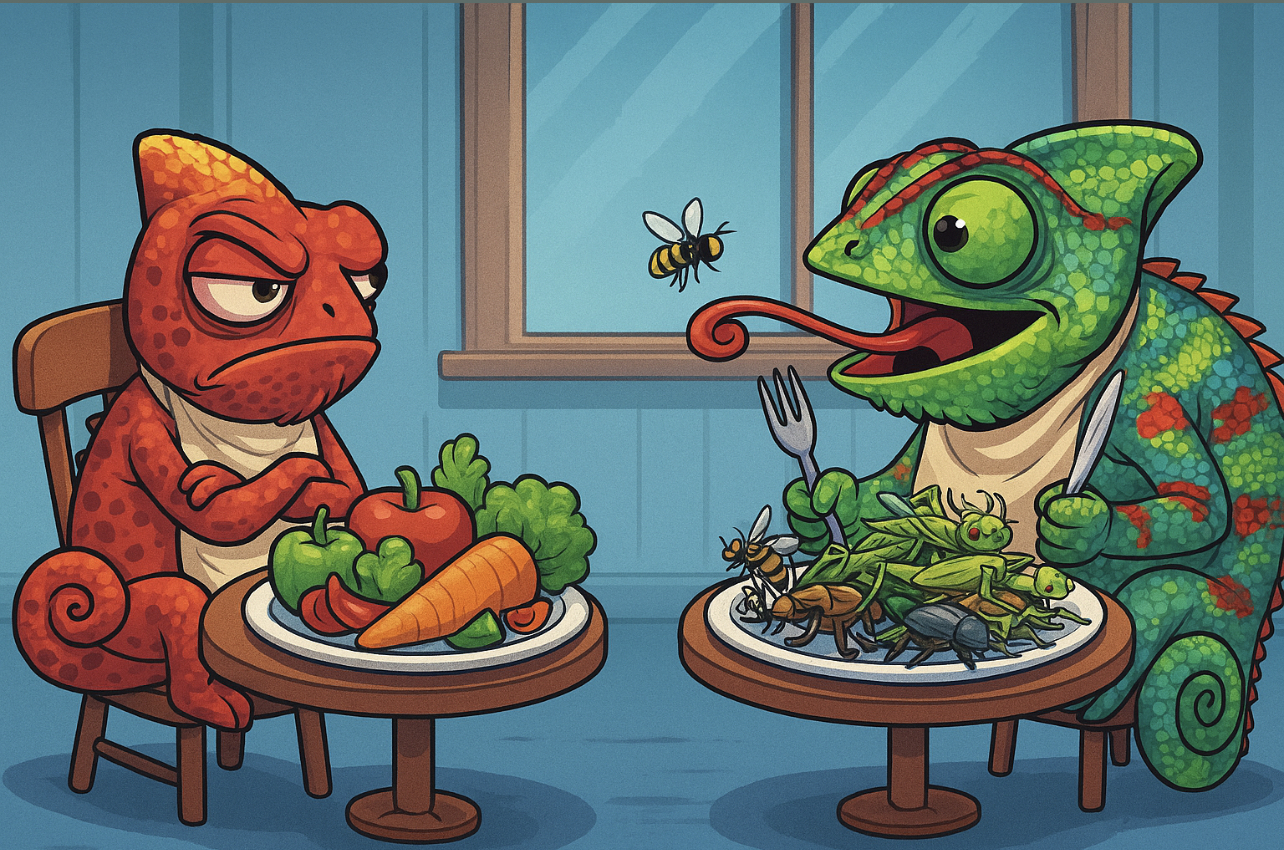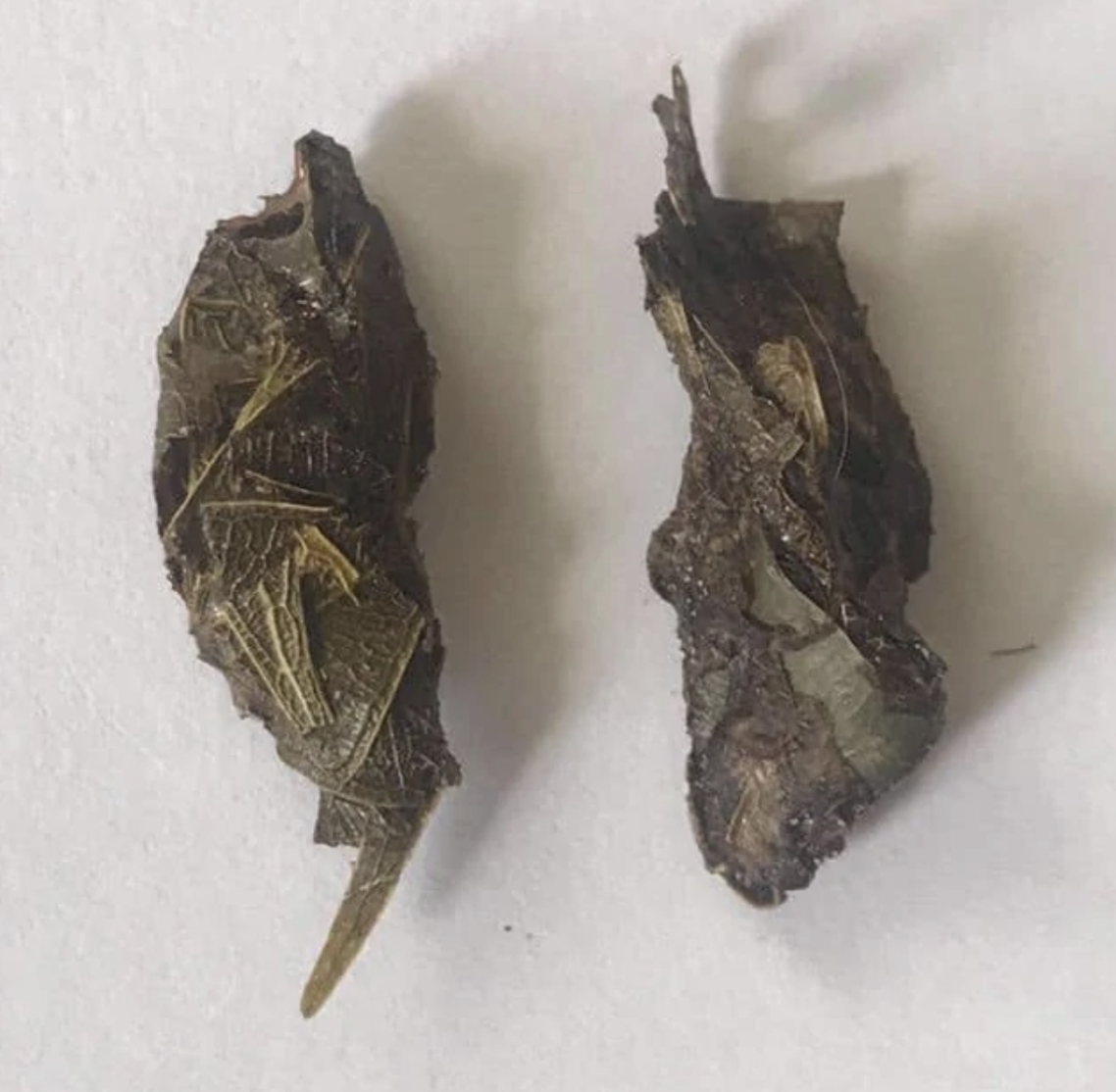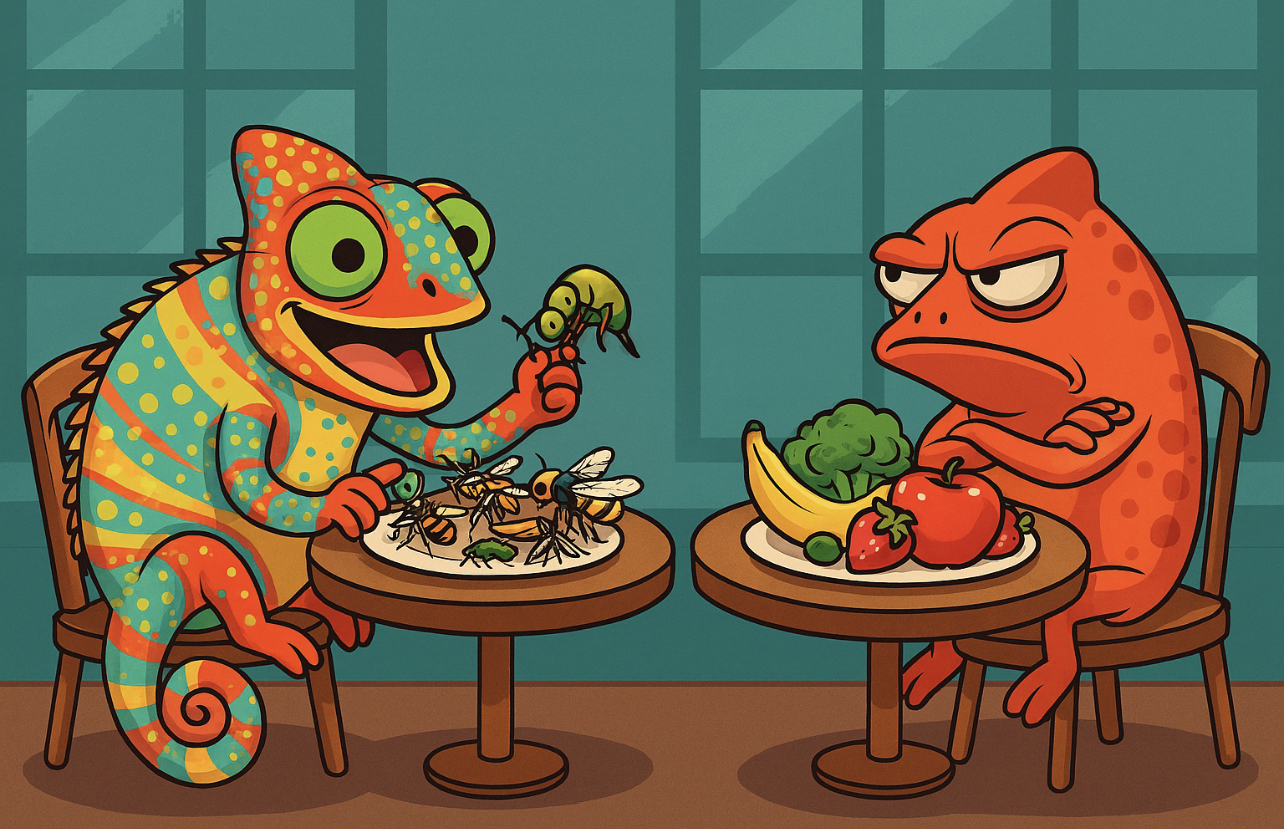Myth 40: “Chameleons Eat Plants For Nutrition And For Hydration”

The Myth: Some people believe chameleons — especially Yemen Chameleons — eat leaves, fruits, or vegetables to hydrate themselves or gain nutrition. This misconception leads to harmful feeding practices.
The Reality: Chameleons are insectivores, not omnivores. Their interaction with plant matter is incidental, functional, or environmental — not dietary in the way humans or herbivores consume plants.
Why Chameleons Might Eat Plant Matter
They do consume plant material, but not for hydration or nutrition. Here's why:
Pollen: Ingested indirectly when eating pollinators like bees.
Leaves and Fruits: Used as roughage to aid digestion, especially when prey lacks chitin.
Flowers: Consumed for roughage and incidental pollen.
Gut Content of Prey: Many insects eat plants, so chameleons ingest plant matter indirectly.
Why Leaves Not Consumed For Hydration
When ingested, the water is one of the few nutrients that can be extracted from the leaves. But it does not mean they do this purposefully.During the rainy season, when leaf consumption is highest, water is abundant — so hydration isn't a concern.
In the dry season, leaves are dry and offer no moisture. Eating them for hydration would be pointless.
Why Leaves Aren't Nutritious
Chameleons cannot digest most plant material. It passes through their system largely unchanged.
Their digestive tract is short and not adapted to extract nutrients from amorphous plant matter.

The Real Reason They Eat Leaves
During Yemen's rainy season, chameleons feed on soft-bodied prey like caterpillars and orthopteran nymphs, which lack chitin. To help move this soft food through their gut, they consume indigestible plant matter as a mechanical aid — like fiber in human diets. It's not for nutrition; it's for peristaltic support.
Two Dangerous Extremes
1. "My chameleon eats mango, so it must be good!"
Chameleons can be trained to accept food from humans — even unnatural items like fruit, cheese, or paper.
This is not natural behavior. In the wild, no one offers them strawberries or bananas.
Just because they eat it doesn't mean it's safe or beneficial. It's conditioning, not instinct.
2. "Chameleons are omnivores like humans"

Some owners apply human dietary logic to reptiles — assuming vegetables can replace insects.
But essential nutrients found in insects are absent in plants.
Feeding only fruits or vegetables leads to malnutrition, starvation, and in tragic cases, death.
There are documented cases of chameleons fed only carrots and bananas for months — resulting in severe suffering.
Final Word
Feeding chameleons plant matter as a substitute for insects is not just wrong — it's dangerous. Their biology, evolution, and digestive systems are built for insect consumption. Misunderstanding this leads to suffering and preventable deaths.
If you care about your chameleon, feed it what nature intended: insects. Not fruit salad.